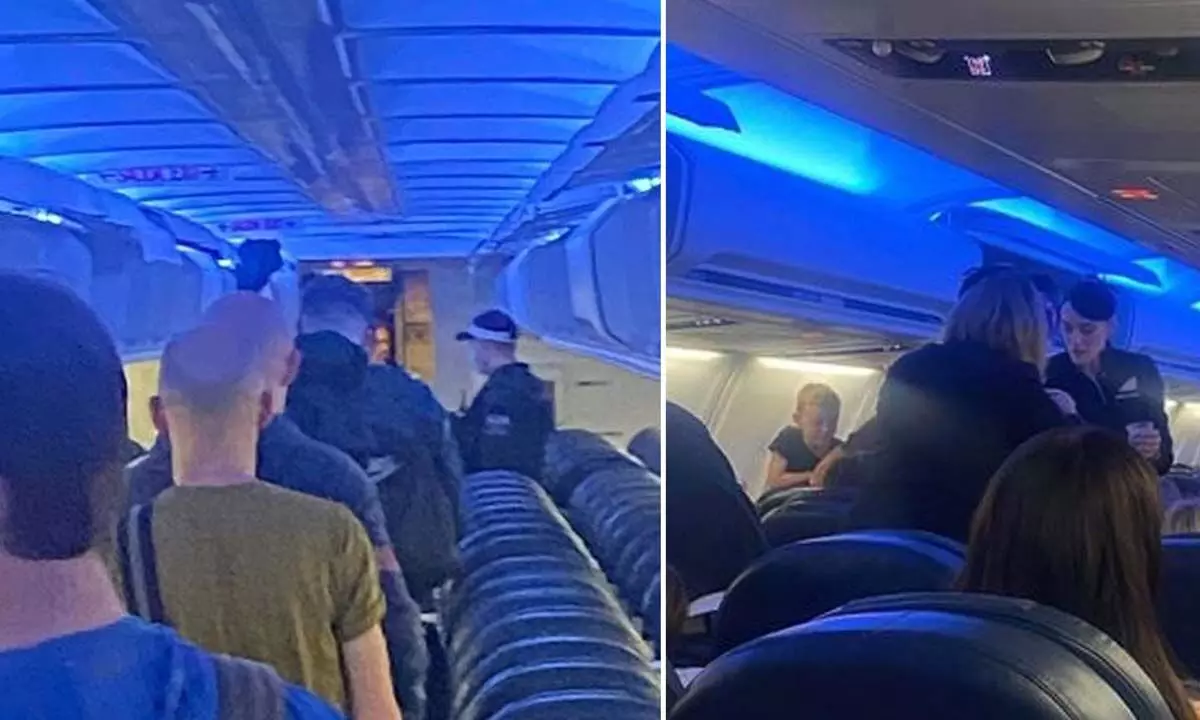Aviation staff shortage a nightmare for passengers
In the next 20 years, airlines will have to add 25,000 new aircraft to the current 17,000-strong commercial fleet. By 2026, there will be a need for 4,80,000 new technicians to maintain these aircraft and over 3,50,000 pilots to fly them.
image for illustrative purpose

In the next 20 years, airlines will have to add 25,000 new aircraft to the current 17,000-strong commercial fleet. By 2026, there will be a need for 4,80,000 new technicians to maintain these aircraft and over 3,50,000 pilots to fly them.
Simply stated, the demand for aviation professionals will exceed the supply. Factors include wholesale retirements in the current generation of aviation professionals; aviation professions not attractive enough to potential candidates; competition with other industry sectors for skilled employees; training capacity insufficient to meet demand; learning methodologies not responsive to new evolving learning styles; accessibility to affordable training; lack of harmonization of competencies in some aviation disciplines, and little awareness by the 'next generation' of types of aviation professions available.
ICAO and the International Air transport Association (IATA) are collaborating on this issue, generating synergy between ICAO's Next Generation of Aviation Professionals Taskforce and IATA's Training and Qualification Initiative (ITQI). IATA is supportive of globally harmonized standards and will be implementing evidence-based training as well as competency-based training for engineering and maintenance.
With a focus on the aviation sector, in a rather surprising move, Air India said it would give contracts to Pilots, post their superannuation for flying till the age of 65 subject to conditions. While the DGCA allows pilots to fly till they are 65 years, airlines usually have their current retirement age at 58. In fact, Aviation Minister Jyotiraditya Scindia in a reply to parliament mentioned that there is a 'marginal shortage of commanders of certain types of aircraft but no shortage of commercial pilots. And that there are 862 commercial pilot licenses issued in 2021 which is an all-time high.
As countries reopen borders and Covid curbs fall away, travel has sprung back with such voracity that it's resulted in an unprecedented labour crunch, made worse by the pandemic-induced layoffs of hundreds of thousands of workers, from pilots to cabin crew and ground-handling staff. Many are in no mood to come back but even if they were, scaling up at such a pace is a risk for airlines and airports, with spiralling inflation and economic pressures putting a question mark over how sustainable the current demand really is.
Many airlines like Delta, Lufthansa, and British Airways, have cancelled flights by the hundreds. The result has been long queues at airports, lost luggage, long layovers, and acute disappointment. At Heathrow airport, there were large queues stretching to outside the airport waiting for immigration and security checks which took over one and a half hours to go through the process. Kudos to the staff! They managed to move the queues quickly enough for passengers who had come in four hours before their flight to make it in time to catch their flight.
Some passengers who have phoned customer services to complain have been left on hold for hours and others faced the prospect of being separated from their children.
There are multiple reasons fuelling the disruptions, from bad weather to the economic impact of the war in Ukraine, but labour shortages have been cited as a common reason.
Airlines have been asked to underbook to curtail the number of people on each flight resulting in passengers having to pay a premium of nearly one-third in addition to the normal fare if they want to get to their destination come what may.

